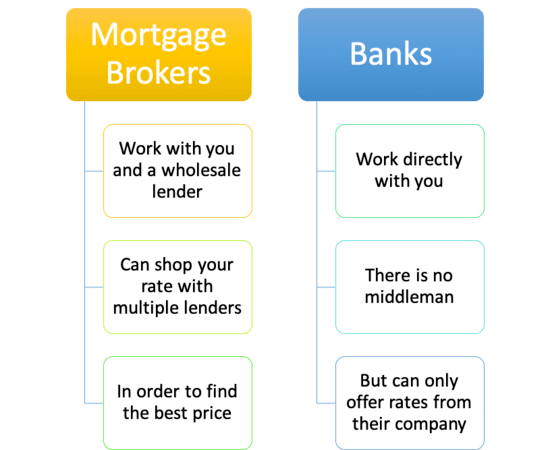Jumbo Loan Fees: What You Required to Know Prior To Using
Recognizing What a Jumbo Lending Entails and Exactly How It Differs From Traditional Finances
Navigating the details of jumbo lendings discloses a financing alternative tailored for those venturing right into high-value real estate, commonly exceeding the limitations set by the Federal Real Estate Money Company. The significant danger linked with jumbo fundings necessitates more rigid qualification demands, consisting of higher credit scores and substantial down payments.
Meaning of Jumbo Lendings
Jumbo lendings are a sort of home mortgage that go beyond the adapting funding restrictions set by the Federal Housing Finance Agency (FHFA) These fundings deal with borrowers that need to finance buildings that are much more costly than what standard lending restrictions enable. The FHFA develops yearly adapting car loan limits, and any finance exceeding these limits is identified as a big loan.
Usually, jumbo fundings are made use of in high-cost actual estate markets where home costs substantially surpass national averages, such as in cities or deluxe real estate fields. As these financings are not qualified for purchase by Fannie Mae or Freddie Mac, they carry inherent threats for lending institutions because of their larger size and non-conformity (jumbo loan). Lending institutions typically impose a lot more strict credentials requirements for jumbo finances than typical adapting car loans.
Borrowers looking for jumbo finances should usually demonstrate a solid economic profile, consisting of a higher credit history, robust earnings verification, and considerable deposit, usually 20% or more. In addition, loan providers might require much more extensive paperwork to evaluate the customer's capacity to handle larger regular monthly payments. Understanding the details characteristics of big finances is essential for prospective consumers navigating this section of the home mortgage market.
Conventional Car Loans Introduction
While big loans accommodate high-value residential property funding, conventional car loans represent the more typical home loan alternative in the real estate market. These fundings are not guaranteed or assured by any kind of federal government entity, such as the Federal Real Estate Management (FHA) or the Division of Veterans Matters (VA) Rather, they are backed by exclusive lending institutions and adhere to guidelines set by government-sponsored enterprises (GSEs) like Fannie Mae and Freddie Mac.
Conventional loans are usually used with dealt with or adjustable rate of interest and differ in terms of duration, commonly spanning 15 to three decades. Consumers often favor traditional fundings for their predictable monthly payments, which can facilitate lasting economic planning. Additionally, they are readily available for primary residences, 2nd homes, and financial investment residential or commercial properties, offering flexibility to satisfy diverse borrower demands.

Secret Distinctions In Between Car Loans
Recognizing the nuances between different kinds of finances is important for possible homebuyers navigating the complicated home mortgage landscape. At the forefront of this decision-making process are traditional fundings and big loans, each possessing distinct qualities and serving different customer demands. The key distinction relaxes in the loan amount. Jumbo lendings exceed the adhering funding limitations set by the Federal Housing Finance Agency (FHFA), which differ by area. In contrast, traditional finances follow these restrictions and are commonly acquired by government-sponsored entities like Fannie Mae and Freddie Mac.

Additionally, the deposit needs can vary substantially. Jumbo car loans normally call for bigger down settlements, in some cases surpassing 20%, to minimize threat. Standard lendings, conversely, may permit lower deposits, with some programs accepting as low as 3% for competent purchasers.
Credentials Needs
Safeguarding a big lending involves meeting more stringent qualification needs contrasted to standard financings, mirroring the increased threat to lending institutions. These financings, which go beyond the adjusting loan restrictions established by the helpful hints Federal Housing Finance Agency (FHFA), are not qualified for acquisition by Freddie Mac or Fannie Mae, therefore revealing lending institutions to higher monetary risk - jumbo loan. As an outcome, debtors need to demonstrate a high creditworthiness and economic security
A robust credit history, typically 700 or greater, is crucial for approval. Lenders additionally expect a lower debt-to-income (DTI) ratio, usually not surpassing 43%, making certain that customers can manage significant regular monthly settlements alongside various other economic obligations. A considerable cash money get is generally called for, typically amounting to 6 months of mortgage repayments, to reassure loan providers of the consumer's financial durability.
Deposit expectations are additionally raised, frequently starting at 20% or even more of the home's value. While this is a protect for lenders, it demands significant in advance capital from customers. In addition, evidence of consistent, adequate earnings is crucial, usually confirmed with tax obligation returns, W-2s, and current pay stubs. Self-employed people may need to give further documents, such as revenue and loss statements, to corroborate their income security.
Choosing the Right Funding
Browsing the intricacy of jumbo loans requires cautious consideration when choosing the most suitable funding choice. With the wider array of choices available to those looking for jumbo finances, the decision-making procedure should include a thorough evaluation of one's economic profile and long-lasting objectives. Unlike conventional lendings, big financings often come with more stringent requirements and differed rate of interest, which require thorough research and a clear understanding of one's monetary standing.
When choosing in between different big loan offerings, it is crucial to examine the loan terms, including passion prices, repayment timetables, and associated fees. Consumers ought to compare the prices provided by different lenders to guarantee they secure one of the hop over to these guys most beneficial terms. Furthermore, comprehending the effects of taken care of versus variable-rate mortgages (ARMs) is critical, as each alternative provides unique benefits and threats depending upon market conditions and personal economic methods.
Engaging with a financial consultant or home loan broker can provide valuable understandings tailored to individual circumstances. These specialists can aid in browsing the nuances of big financings, guaranteeing that customers are knowledgeable and outfitted to pick a car loan that aligns with their economic purposes, ultimately helping with a smoother home-buying process.
Final Thought
In summary, big financings function as an economic instrument for acquiring high-value homes, demanding rigid qualification demands and higher rates of interest due to the elevated threat for loan providers. Unlike conventional lendings, which satisfy FHFA limits and may receive backing from Fannie Mae or Freddie Mac, jumbo lendings call for a minimal credit report of 700 and significant deposits. Understanding these differences is critical for debtors in high-cost realty markets to establish the most ideal funding choice for their needs.
The FHFA establishes yearly conforming car loan limits, and any kind of car loan surpassing these thresholds is classified as a jumbo funding.
At the forefront of this decision-making procedure are big financings and standard finances, each possessing distinctive attributes and serving different debtor demands.Securing a jumbo lending includes satisfying much more rigorous certification demands compared to conventional finances, mirroring the enhanced threat to loan providers. Unlike conventional car loans, jumbo financings usually come with stricter demands and differed interest rates, which demand detailed research and a clear understanding of one's financial standing.
Unlike conventional lendings, which adhere to FHFA limits and may obtain backing from Fannie Mae or Freddie Mac, jumbo finances require a minimum credit scores rating of 700 and significant down repayments.